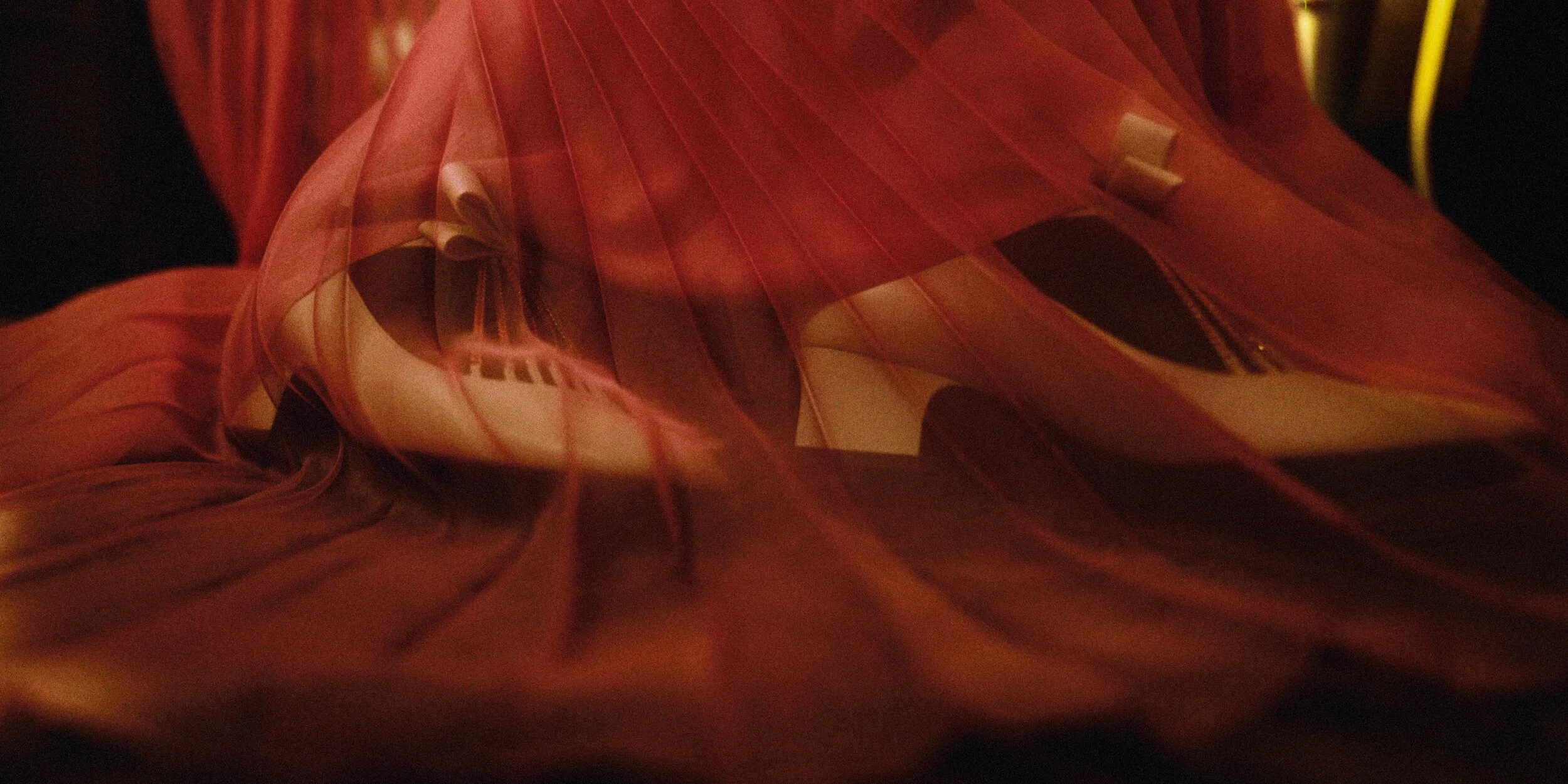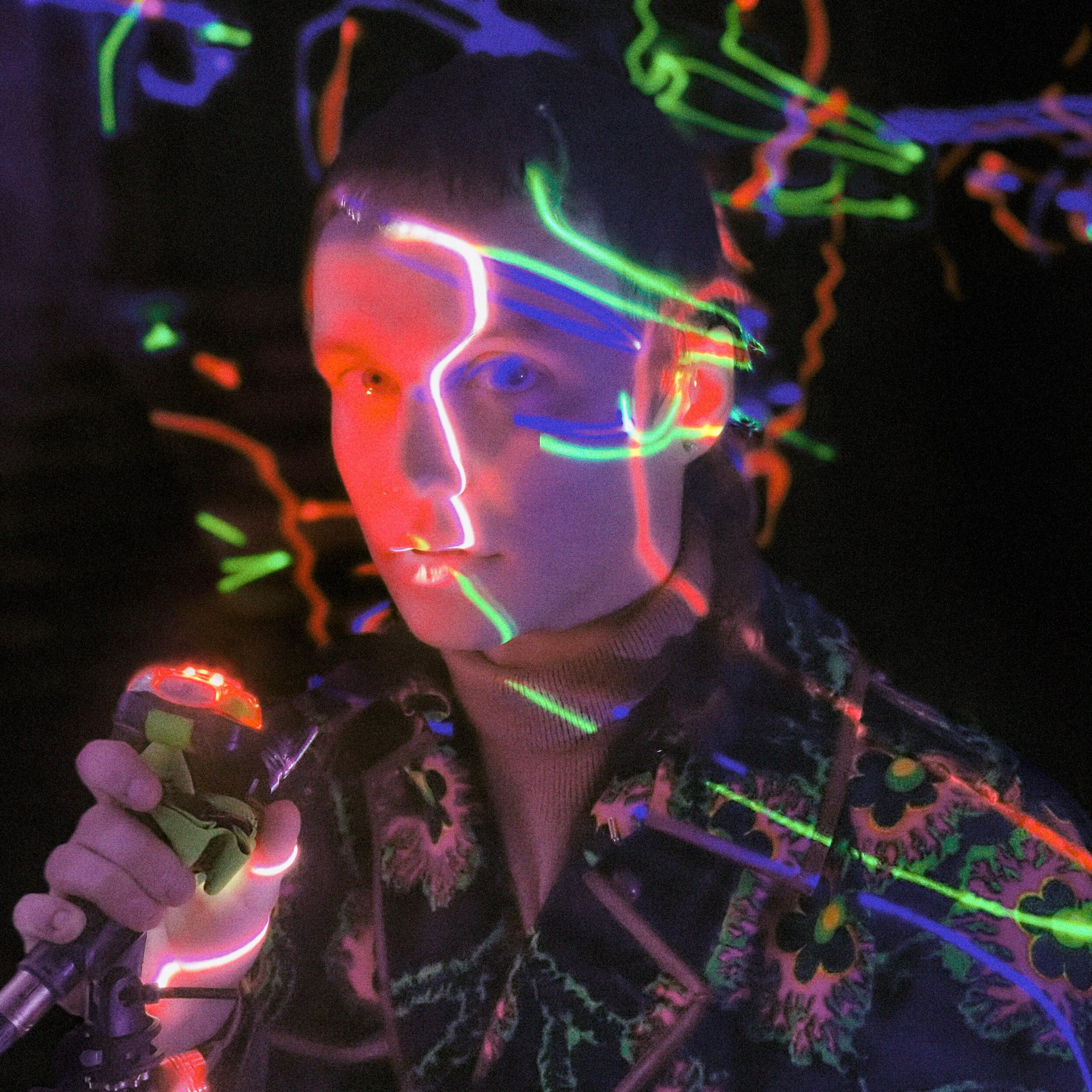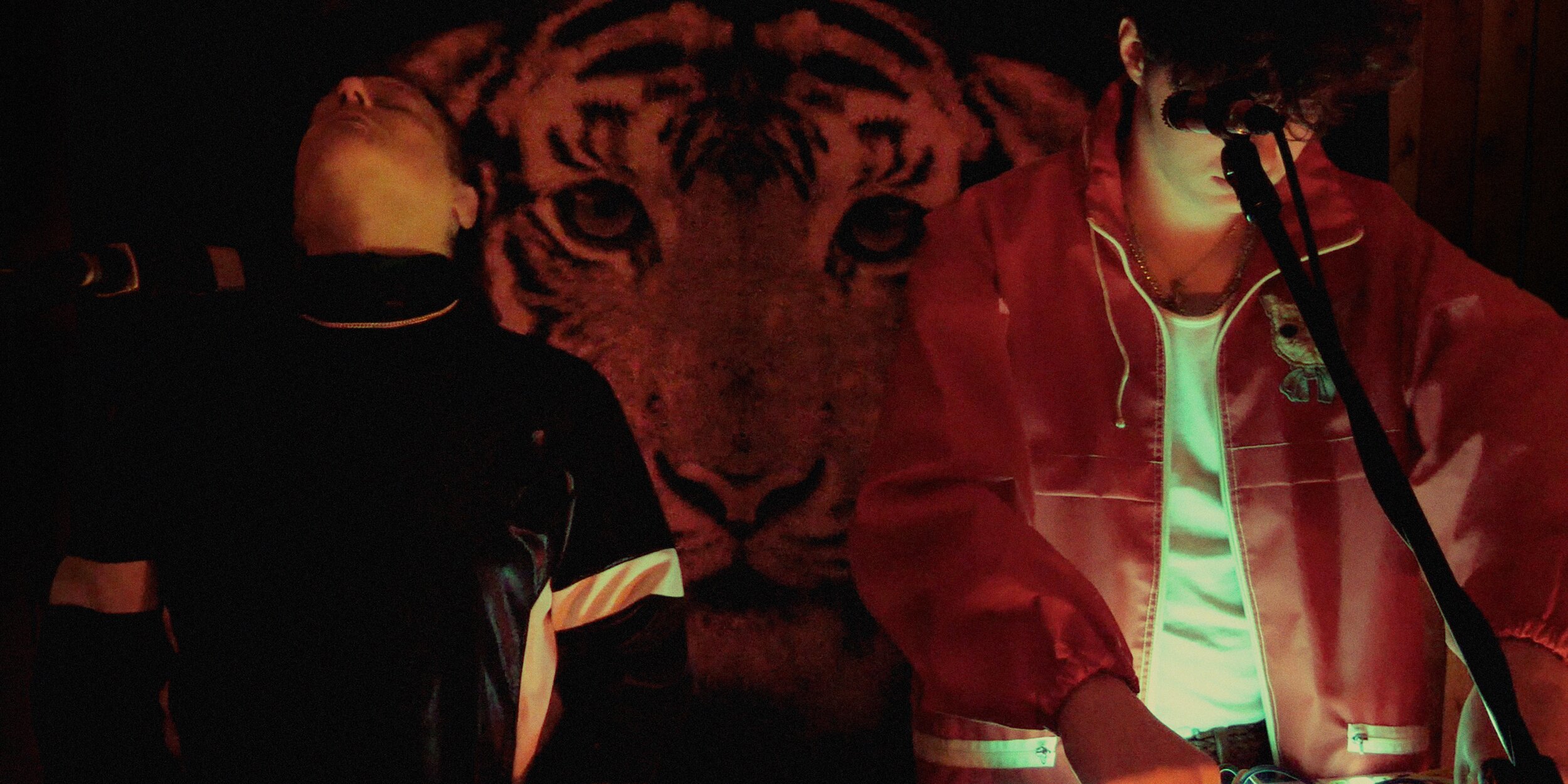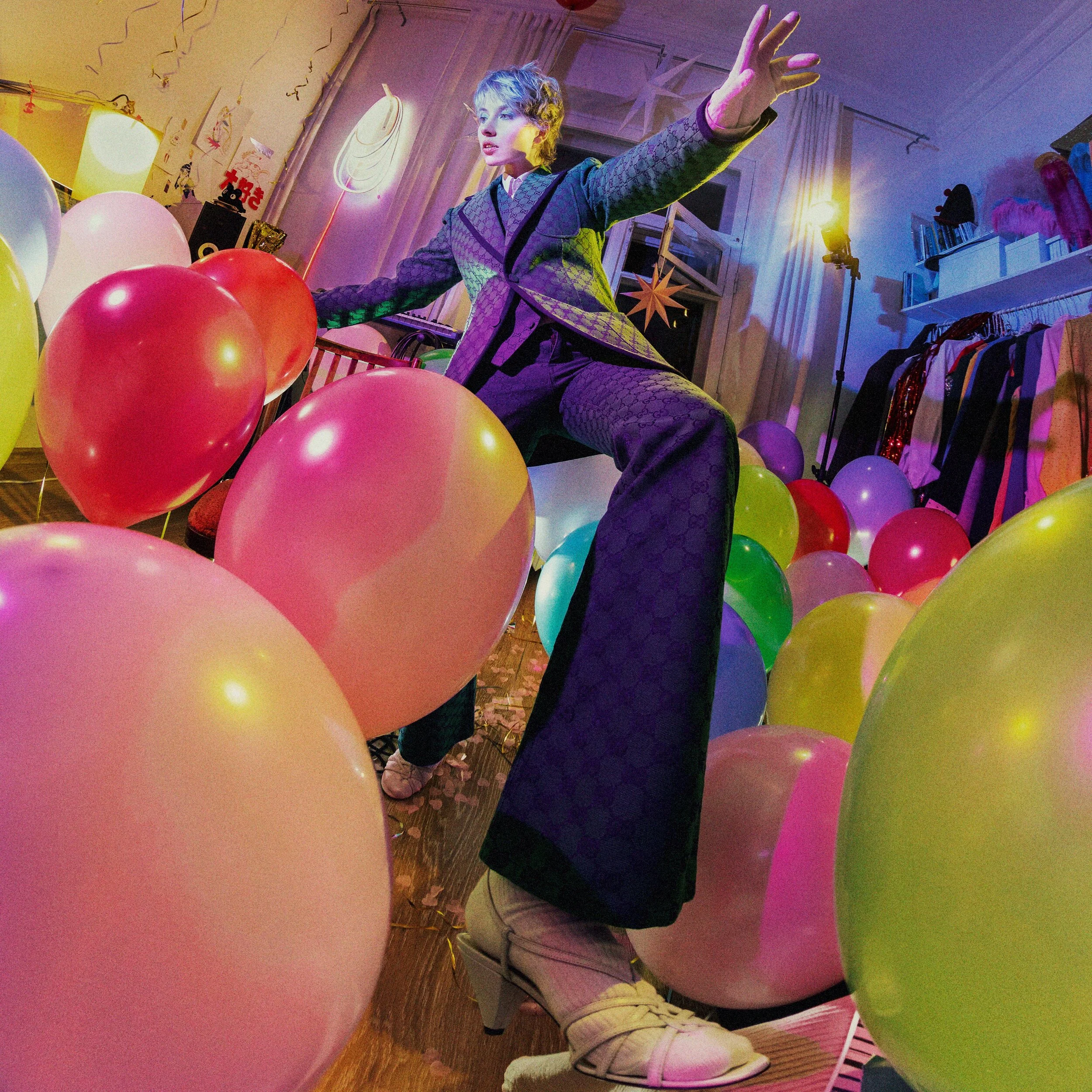Angèle David-Guillou.
Notes From The Underground.
Philip Glass is as good a starting point as any when discussing the work of French composer and producer Angèle David-Guillou. She is an artist, after all, whose very core is built upon reflections and illusions. Tracks like ‘Valley of Detachment’ and ‘V for Visconti’ are fuelled by the same sense of hypnotic repetition, as staccato brass, dynamic strings and rumbling timpani drums create engrossing patterns of harmony and disharmony. ‘I don't think there are many perfect records,’ she says, ‘but maybe [Kraftwerk’s] Computer World and [Philip Glass’s] Glassworks are some of them.’
Glass’s contemporary minimalist and chamber music compositions are an inviting parallel, but David-Guillou insists that it’s the absurdities and sense of playfulness that are even more meaningful to her. A sense of surrealism is key to her work – and nowhere is this better encompassed than on the title track of latest album, A Question of Angles. Backed by short, suspenseful bursts from a string ensemble, the entrancing composition is led by an operatic glissando of what sounds like a human voice. In fact, it is the gliding science-fiction swoop of a theremin, often described as one of the first electronic instruments. ‘It's very intense, very serious,’ she says. ‘But I like the fact that you don't really know what you're hearing.’
With her lockdown EP Sans Mouvement (a reimagination of tracks from her 2017 LP En Mouvement) recorded on the church organ in London's Union Chapel, this sense of surrealism was embodied even further. ‘Playing the organ,’ says David-Guillou, ‘it's like you're inside the body of the piano, in the resonance.’ And inside the cavernous Union Chapel, that spatial transformation reached an apex. ‘You're facing the wall, and you can't see the church behind you. It very much feels like you're on a spaceship.’
Her creative vision is further shaped by the films of Jean Cocteau and of Andrei Tarkovsky, whose 1983 Soviet-Italian film Nostalgia is a go-to. Its tensions between reality and fantasy are something that, conceptually, David-Guillou strives to replicate in her own work. ‘Everything is very realistic,’ she says of the film. ‘And then, suddenly, [the protagonist] has a dream, and it rains in the bedroom, and a dog from his childhood appears. And suddenly you are transported somewhere completely different. But that’s how life is, that’s how we think. It’s very real, but then there are moments where we’re in a dream, or we’re sitting in our thoughts.’
And while cinema and literature are often even stronger inspirations for David-Guillou than music itself, she also takes influence from further afield. The ancient civilisations of Sumeria and the mystical Islamic school of Sufism are among the many touchpoints that distinguish David-Guillou as an artist with a deeply imaginative streak. It’s something she saw fit to express in her shoot for Perfect, which sees her adorned with a sparkling, sequinned cap as part of an outfit chosen from the Gucci look book. ‘I thought it looked appropriately ridiculous,’ she says, drawing a line between the costume and the surrealist expressions of her music. But in the context of her studio-bedroom in New Cross where this project was filmed, the garment also offers a specific meaning. ‘We're in the spaceship,’ she says. ‘And I'm the captain, wearing the helmet.’











